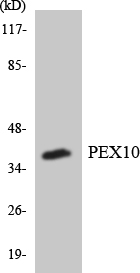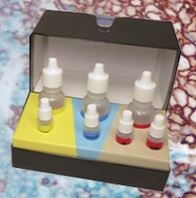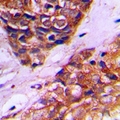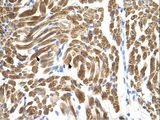Login
Registration enables users to use special features of this website, such as past
order histories, retained contact details for faster checkout, review submissions, and special promotions.
order histories, retained contact details for faster checkout, review submissions, and special promotions.
Forgot password?
Registration enables users to use special features of this website, such as past
order histories, retained contact details for faster checkout, review submissions, and special promotions.
order histories, retained contact details for faster checkout, review submissions, and special promotions.
Quick Order
Products
Antibodies
ELISA and Assay Kits
Research Areas
Infectious Disease
Resources
Purchasing
Reference Material
Contact Us
Locations
Orders Processing,
Shipping & Receiving,
Warehouse
2 Shaker Rd Suites
B001/B101
Shirley, MA 01464
Production Lab
Floor 6, Suite 620
20700 44th Avenue W
Lynnwood, WA 98036
Telephone Numbers
Tel: +1 (206) 374-1102
Fax: +1 (206) 577-4565
Contact Us
Additional Contact Details
Login
Registration enables users to use special features of this website, such as past
order histories, retained contact details for faster checkout, review submissions, and special promotions.
order histories, retained contact details for faster checkout, review submissions, and special promotions.
Forgot password?
Registration enables users to use special features of this website, such as past
order histories, retained contact details for faster checkout, review submissions, and special promotions.
order histories, retained contact details for faster checkout, review submissions, and special promotions.
Quick Order
| Catalog Number | Size | Price |
|---|---|---|
| LS-C200482-50 | 50 µl (1 mg/ml) | $334 |
| LS-C200482-100 | 100 µl (1 mg/ml) | $397 |

Polyclonal Rabbit anti‑Human PEX10 Antibody (aa166‑215, IHC, WB) LS‑C200482
Polyclonal Rabbit anti‑Human PEX10 Antibody (aa166‑215, IHC, WB) LS‑C200482
Antibody:
PEX10 Rabbit anti-Human Polyclonal (aa166-215) Antibody
Application:
IHC, WB, Peptide-ELISA
Reactivity:
Human
Format:
Unconjugated, Unmodified
Toll Free North America
 206-374-1102
206-374-1102
For Research Use Only
Overview
Antibody:
PEX10 Rabbit anti-Human Polyclonal (aa166-215) Antibody
Application:
IHC, WB, Peptide-ELISA
Reactivity:
Human
Format:
Unconjugated, Unmodified
Specifications
Description
PEX10 antibody LS-C200482 is an unconjugated rabbit polyclonal antibody to human PEX10 (aa166-215). Validated for IHC, Peptide-ELISA and WB.
Target
Human PEX10
Synonyms
PEX10 | NALD | PBD6A | PBD6B | Peroxin 10 | Peroxisome assembly protein 10 | Peroxin-10 | RING finger protein 69 | RNF69
Host
Rabbit
Reactivity
Human
(tested or 100% immunogen sequence identity)
Clonality
IgG
Polyclonal
Conjugations
Unconjugated
Purification
Immunoaffinity purified
Modifications
Unmodified
Immunogen
Synthetic peptide from human PEX10. (AA Range: 166-215)
Epitope
aa166-215
Specificity
PEX10 Antibodyantibody detects endogenous levels of PEX10.
Applications
- IHC (1:50 - 1:100)
- Western blot (1:500 - 1:1000)
- Peptide Enzyme-Linked Immunosorbent Assay (1:10000)

|
Performing IHC? See our complete line of Immunohistochemistry Reagents including antigen retrieval solutions, blocking agents
ABC Detection Kits and polymers, biotinylated secondary antibodies, substrates and more.
|
Usage
Western Blot: Predicted MW 37 kDa
Presentation
PBS, pH 7.4, 150 mM NaCl, 0.02% Sodium Azide, 50% Glycerol
Storage
Store at -20°C.
Restrictions
For research use only. Intended for use by laboratory professionals.
About PEX10
Publications (0)
Customer Reviews (0)
Featured Products
Species:
Human
Applications:
IHC, IHC - Paraffin, Western blot, Peptide Enzyme-Linked Immunosorbent Assay
Species:
Human
Applications:
IHC, Western blot, ELISA
Species:
Human, Monkey
Applications:
IHC, IHC - Paraffin, Western blot
Source:
Human
Tag:
Myc-DDK (Flag)
Request SDS/MSDS
To request an SDS/MSDS form for this product, please contact our Technical Support department at:
Technical.Support@LSBio.com
Requested From: United States
Date Requested: 9/19/2024
Date Requested: 9/19/2024














